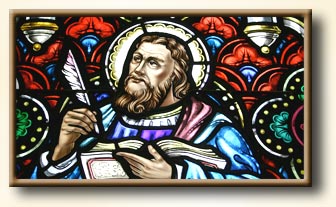|
Music, and especially the singing of hymns, constitutes a normal and very effective way of supplementing and strengthening the Liturgy and expressing praise, love and sorrow in our worship of God. Thus, the Hymnal has been called “The Book of Common Praise”.
Throughout the early years of Christianity and the Church, the voice alone was the only musical instrument (and it certainly can be called that) which was heard in Christian churches. The very first Christian hymn was that sung by the angels at the birth of Jesus. For centuries the music used in worship was not only sung as non-instrumental, but it was also monophonic, that is, consisting of one melody only, sung alike by all voices.
This is the simple and effective music known to Anglicans and others as plain song or plain chant. It is not so much heard today, more is the pity, except by boys’ and men’s choirs in some of the great cathedrals. The hymns used for congregational singing are mostly polyphonal, consisting of interwoven melodies.
Polyphonal music did not begin to be written until the thirteenth century, when it gradually began to supplement – and eventually largely to supplant – the older plain song, or Gregorian chant. Instrumental music to accompany singing had come into use even earlier. The organ, now so universal a church instrument, was invented as early as the second century, in Byzantium, but found its way only haltingly into Christian churches from the seventh century on.
Many of the hymns contained in Anglican hymnals (and certainly in the Hymnal of 1940, long the standard of Episcopal churches and now still in use among Continuing Anglicans) are very ancient and have an unsurpassed solemnity. Examples of these are to be found in such hymns as “Let All Mortal Flesh Keep Silence”, “Now My Tongue The Mystery Telling”, “Come, Holy Ghost, Our Souls Inspire”, “Christian, Dost Thou See Them”, and many others. These date back to early centuries and early and medieval Saints, either in tune or text or both, and many of them are still set to plain song.
A wealth of other familiar hymns are more modern in tune and text. These include a great many examples of texts written by the Wesleys (especially Charles), Luther, John Mason Neale, Isaac Watts and many another noted hymnists. They are set to more modern polyphonal tunes by famous and not-so-famous composers.
There is a tendency in too many Anglican churches to fall into the narrow rut of using only a relatively few very familiar and well-loved hymns. This tendency should be resisted. The Hymnal contains a wide variety of excellent hymns, many of which should be more often and more widely used. Incidentally, it is the admirable custom of some Anglicans to read hymns as silent prayers during the Communion or at other suitable times. The spiritual content is often excellent and is more readily absorbed and understood in the reading than in the singing.
Three general observations should be borne in mind about church music. First, it is a magnificent expression of corporate praise and thanksgiving, and as such the whole congregation should join “with heart and voice” in hymn singing. Anglicanism has a glorious tradition of church music and it is therefore the more to be lamented that in some present-day congregations the hymn-singing is so muted and half-hearted. “Praise God from whom all blessing flow” and praise him with fullthroated joy!
Second, all music used in church should be in every way appropriate and seemly. Secular music is to be avoided (with the possible exception of some music which has become traditional at weddings) and so should popularization of old tunes. Hymnody is worship and whether it expresses praise or prayer, joy or penitence, it is offered to God and should be worthy of Him.
Third, it must be remembered that by both tradition and canon law the Rector of parish is in full and final charge of all music. He must choose or approve the music and he has the responsibility to see that is fitting and spiritual. He has therefore the final say as to what is allowable for use.
“Let us now raise our voices,” because “Joyful, joyful, we adore thee”.
|



